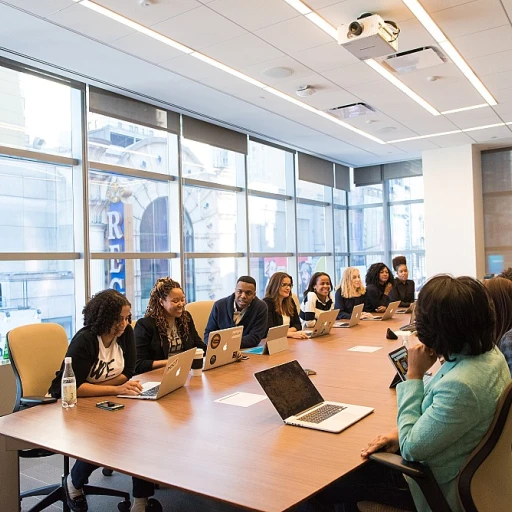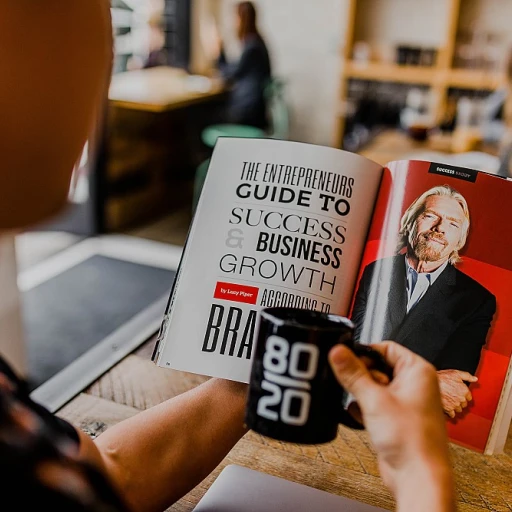
Understanding the Importance of Pre-Hire Solutions
Recognizing the Significance of Early Stages in Staffing
In the rapidly evolving world of hiring within the retail and hospitality sectors, understanding the importance of effective pre-hire solutions cannot be overstated. The initial phases of the recruitment process are paramount, setting the stage for long-term success and enhancing the overall candidate experience. Staffing solutions serve as the backbone for employers aiming to attract top talent in these competitive industries.
The beginning of the hiring process is not just about filling positions swiftly. Rather, it’s about aligning candidates with the employer brand and ensuring a seamless integration into the workplace culture. In the context of retail and hospitality, where customer service and adaptability are crucial, identifying key traits and competencies in potential hires is essential.
Moreover, pre-hire strategies also involve comprehensive screening and the utilization of advanced technological resources like applicant tracking systems to streamline the process. Prioritizing these elements not only reduces the time to hire but also significantly improves staffing efficiency.
By adopting a strategic approach in these early stages, organizations can enhance both their recruitment and talent acquisition efforts, ensuring they attract candidates who are not only qualified but also a cultural fit. This proactive mindset supports a robust staffing strategy that benefits not only the employer but also fortifies the candidate's journey from application to onboarding.
Integrating these strategies as part of your pre-hire initiatives can lead to improved candidate engagement and retention, ultimately contributing to the strength and reputation of the company within the hospitality industry. For further insights on crafting compelling hiring strategies, explore this self-leadership workshop that can enhance employee engagement throughout the recruitment journey.
Identifying Key Traits for Success
Identifying Critical Attributes for a Flourishing Workforce
Understanding the attributes that lead to success in the retail and hospitality sectors is paramount for an effective recruitment process. Key traits often associated with top talent in these industries include exceptional customer service skills, adaptability, and a strong work ethic. These qualities are crucial for crafting a memorable brand experience and ensuring long-term success in the hospitality industry.
Hiring managers and staffing agency professionals continually seek candidates who possess these attributes. Such traits not only enhance the candidate experience but also align with the employer brand, making the process of talent acquisition more seamless and efficient. As the hiring process progresses, enhancing employee engagement becomes vital in maintaining consistency with pre-hire efforts.
Moreover, integrating reliable screening methods during the recruitment process helps in identifying individuals who can thrive in a dynamic work environment. By focusing on these key traits, organizations can optimize their staffing solutions, ensuring they bring aboard top candidates who will contribute positively to their teams.
Utilizing Technology in the Hiring Process
Leveraging Modern Tools to Enhance the Hiring Experience
In the dynamic realms of retail and hospitality, the hiring process has evolved significantly. Employers in these sectors are increasingly relying on technology to streamline recruitment and attract top talent. By integrating technological innovations, businesses can not only improve the efficiency of their staffing solutions but also ensure a more engaging candidate experience. Here’s a closer look at how technology can be a game-changer in hospitality and retail hiring:- Applicant Tracking Systems (ATS): Utilizing an ATS can efficiently manage the influx of applications, especially during peak hiring seasons. This tool helps hiring managers organize candidate data, facilitating better communication and a more personalized candidate journey.
- Video Interviews: In the hospitality industry, where time is of the essence, video interviews offer an efficient solution. They allow candidates and hiring managers flexible scheduling and can be a part of pre-screening to evaluate communication skills vital for customer service roles.
- AI-Powered Screening: AI can assist in identifying key traits and relevant experience through resume parsing, ensuring only the most fitting candidates make it to the interview stage, thus optimizing the recruitment process.
- Enhanced Engagement Tools: Integrating digital solutions that mirror the vibrant and interactive nature of retail and hospitality sectors can enhance the employer brand. This might include using engaging visuals or ensuring the interface mirrors the company culture.
Crafting Engaging Job Descriptions
Highlighting Benefits and Opportunities
Crafting engaging job descriptions goes beyond simply listing the responsibilities and qualifications associated with a position. It involves creating a narrative that speaks to potential candidates, highlighting the benefits and opportunities they can expect in the retail and hospitality sectors. Effective job descriptions are not only informative but also inspire interest and excitement.- Showcase the company culture: Highlight the aspects that make your hospitality staffing or retail business unique. This includes your values, mission, and what it's like to work there, thereby strengthening your employer brand.
- Emphasize growth and development opportunities: Candidates are more attracted to opportunities that promise career advancement. In your job description, outline potential career paths and professional development programs.
- Include testimonials or success stories: Sharing stories from current employees within the talent acquisition process can offer a genuine insight into the workplace experience, thus enhancing the candidate experience.
Conducting Effective Interviews
Mastering the Art of Interviewing: Your Path to Staffing Success
Interviewing candidates is a critical step in hiring for retail and hospitality sectors. It's an opportunity to uncover top talent and gauge their fit within your company. With the right approach, interviews can significantly enhance the effectiveness of your staffing solutions. When interviewing, it's crucial to focus on the candidate's experience and skills relevant to the job. To streamline this process, incorporating structured interviews can be beneficial. Structured interviews rely on predefined questions, ensuring all candidates are assessed equally against the key traits necessary for success in the role. Another effective strategy is leveraging video interviews. These can save both time and resources while expanding your reach to talents across different locations. Video interviews can also provide insights into a candidate's communication skills and alignment with your employer brand, crucial for customer service roles in the hospitality industry. Engaging in behavioral interviewing techniques can also yield valuable insights into candidate suitability. By asking candidates to discuss how they have handled past work situations, hiring managers can gain a deeper understanding of their capabilities and adaptability. This can be particularly useful in predicting long-term success and integration into your team. Don’t underestimate the power of creating a positive candidate experience during interviews. Every interaction reflects on your recruitment process and employer brand. Make sure your interviews are not just about screening applicants, but also an opportunity to present your brand as a desirable place to work. In summary, conducting effective interviews is about more than just finding someone to fill a position. It's about building a positive candidate experience, ensuring recruitment solutions align with long-term business goals, and positioning your brand as an employer of choice in the competitive fields of retail and hospitality.Onboarding as a Continuation of Pre-Hire Engagement
A Seamless Transition into the Workplace
Establishing a robust onboarding process is crucial for fostering ongoing engagement after a successful hire in the retail and hospitality sectors. An effective onboarding not only facilitates a smooth transition into the workplace but also reinforces the candidate's decision to join your brand. To ensure the continuity of the pre-hire engagement, consider these key elements:- Clear and Consistent Communication: From the moment a candidate accepts an offer, maintain open lines of communication. Inform them of their role, responsibilities, and what they can expect during their first days. This approach minimizes anxiety and solidifies a sense of belonging long before their starting day.
- Structured Onboarding Programs: Tailored onboarding programs provide new hires with the knowledge and tools needed to succeed. These programs are particularly significant in the hospitality industry, where understanding customer service etiquette is vital. A structured onboarding also aligns with the pre-established expectations set during the hiring process, making the transition smoother.
- Introduction to the Company Culture: Familiarizing new team members with your company culture enhances their connection to the brand. Share stories, values, and mission statements to embed them effectively within the firm’s ethos, elevating their overall candidate experience.
- Continuous Engagement: Employ a feedback loop to gauge the efficiency of your onboarding process. Request feedback from new hires at regular intervals, ensuring any gaps are addressed promptly. It not only demonstrates your commitment to their development but also refines the process for future hires.













